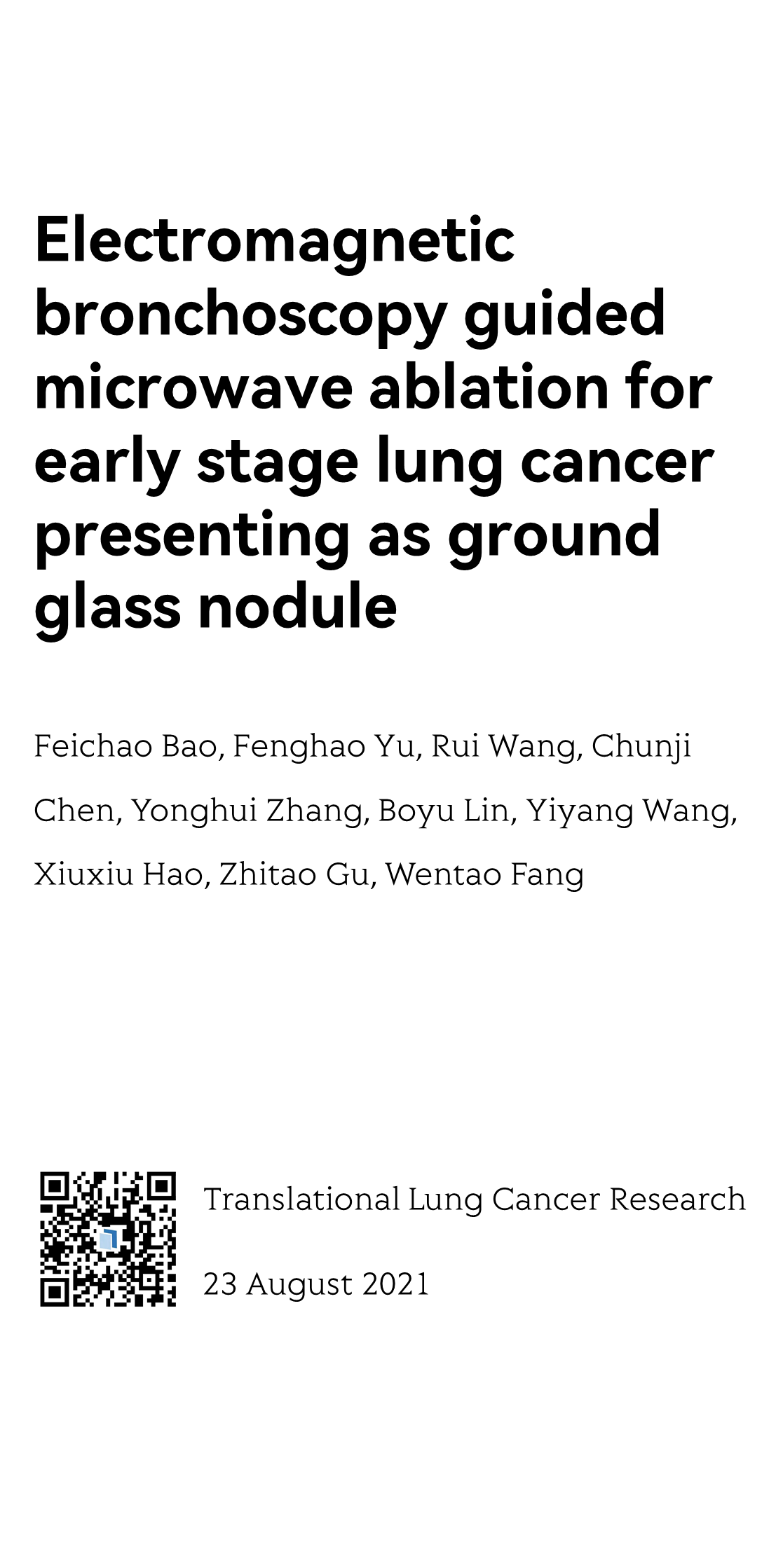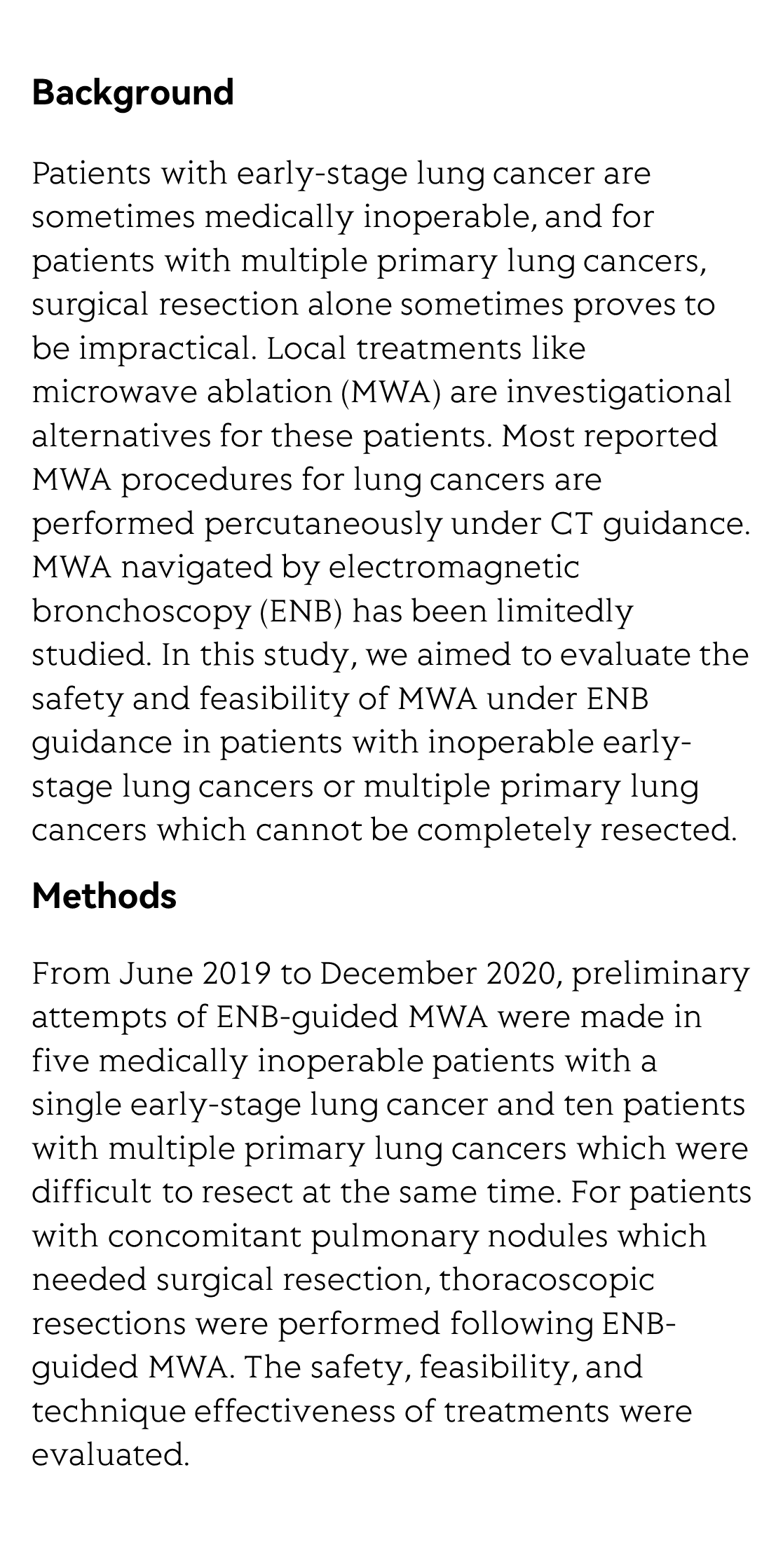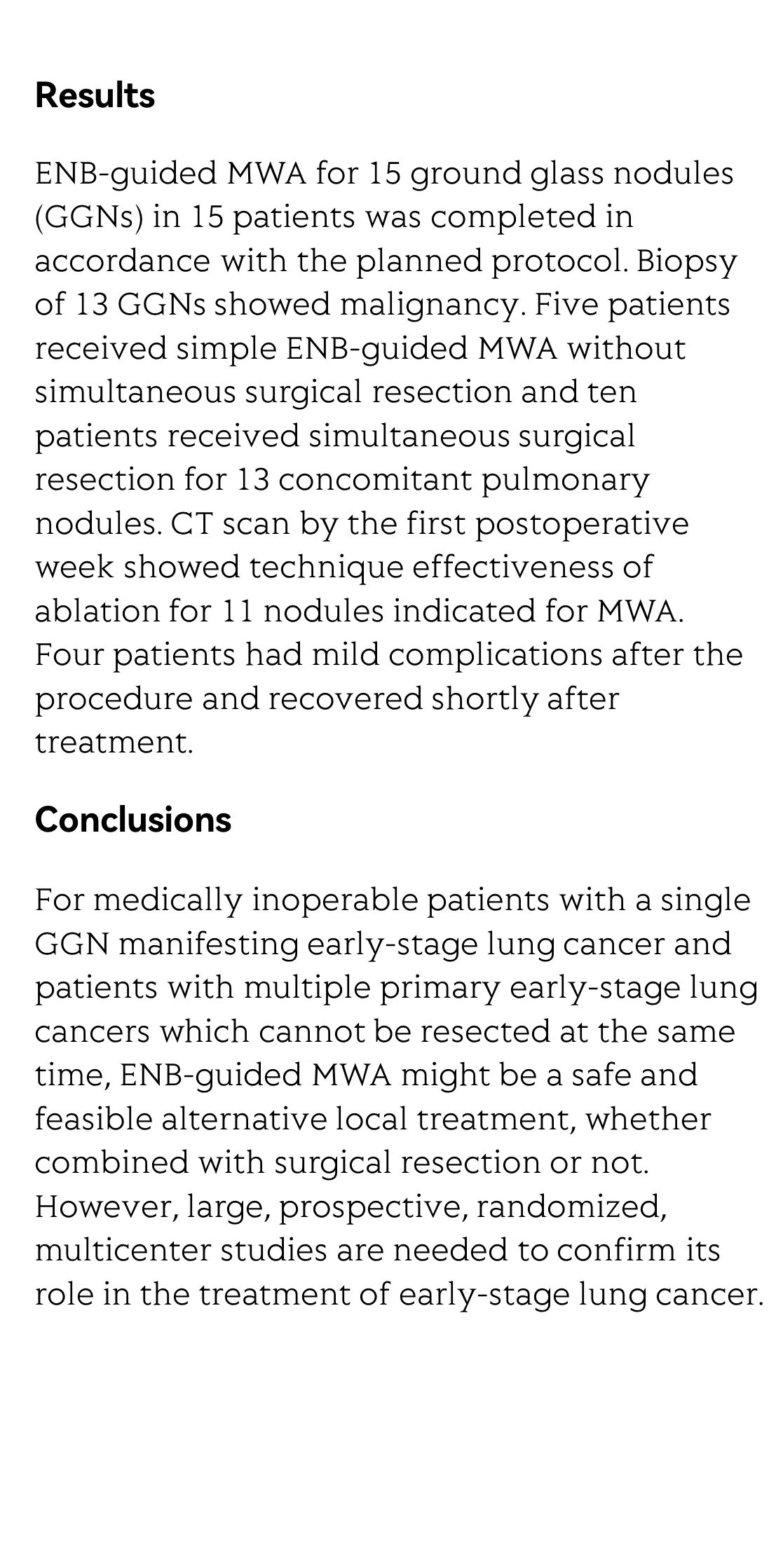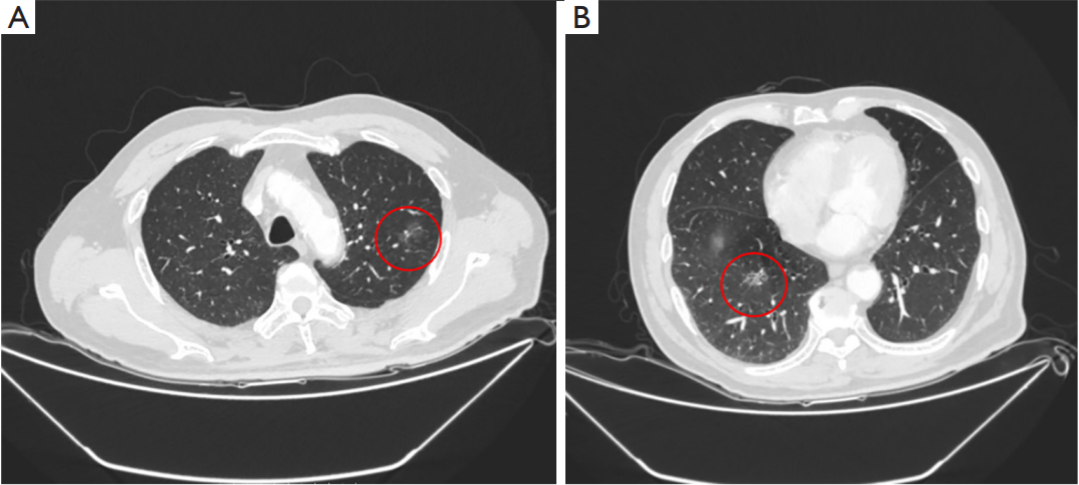(Peer-Reviewed) Electromagnetic bronchoscopy guided microwave ablation for early stage lung cancer presenting as ground glass nodule
Feichao Bao 包飞潮, Fenghao Yu, Rui Wang 王瑞, Chunji Chen 陈春基, Yonghui Zhang, Boyu Lin, Yiyang Wang 王奕洋, Xiuxiu Hao, Zhitao Gu 谷志涛, Wentao Fang 方文涛
Department of Thoracic Surgery, Shanghai Chest Hospital, Shanghai Jiao Tong University, Shanghai, China
中国 上海 上海交通大学 上海市胸科医院胸外科
Translational Lung Cancer Research, 2021-08-23
Background
Patients with early-stage lung cancer are sometimes medically inoperable, and for patients with multiple primary lung cancers, surgical resection alone sometimes proves to be impractical. Local treatments like microwave ablation (MWA) are investigational alternatives for these patients. Most reported MWA procedures for lung cancers are performed percutaneously under CT guidance. MWA navigated by
electromagnetic bronchoscopy (ENB) has been limitedly studied. In this study, we aimed to evaluate the safety and feasibility of MWA under ENB guidance in patients with inoperable early-stage lung cancers or multiple primary lung cancers which cannot be completely resected.
Methods
From June 2019 to December 2020, preliminary attempts of ENB-guided MWA were made in five medically inoperable patients with a single early-stage lung cancer and ten patients with multiple primary lung cancers which were difficult to resect at the same time. For patients with concomitant pulmonary nodules which needed surgical resection, thoracoscopic resections were performed following ENB-guided MWA. The safety, feasibility, and technique effectiveness of treatments were evaluated.
Results
ENB-guided MWA for 15 ground glass nodules (GGNs) in 15 patients was completed in accordance with the planned protocol. Biopsy of 13 GGNs showed malignancy. Five patients received simple ENB-guided MWA without simultaneous surgical resection and ten patients received simultaneous surgical resection for 13 concomitant pulmonary nodules. CT scan by the first postoperative week showed technique effectiveness of ablation for 11 nodules indicated for MWA. Four patients had mild complications after the procedure and recovered shortly after treatment.
Conclusions
For medically inoperable patients with a single GGN manifesting early-stage lung cancer and patients with multiple primary early-stage lung cancers which cannot be resected at the same time, ENB-guided MWA might be a safe and feasible alternative local treatment, whether combined with surgical resection or not. However, large, prospective, randomized, multicenter studies are needed to confirm its role in the treatment of early-stage lung cancer.
Separation and identification of mixed signal for distributed acoustic sensor using deep learning
Huaxin Gu, Jingming Zhang, Xingwei Chen, Feihong Yu, Deyu Xu, Shuaiqi Liu, Weihao Lin, Xiaobing Shi, Zixing Huang, Xiongji Yang, Qingchang Hu, Liyang Shao
Opto-Electronic Advances
2025-11-25
A review on optical torques: from engineered light fields to objects
Tao He, Jingyao Zhang, Din Ping Tsai, Junxiao Zhou, Haiyang Huang, Weicheng Yi, Zeyong Wei Yan Zu, Qinghua Song, Zhanshan Wang, Cheng-Wei Qiu, Yuzhi Shi, Xinbin Cheng
Opto-Electronic Science
2025-11-25







